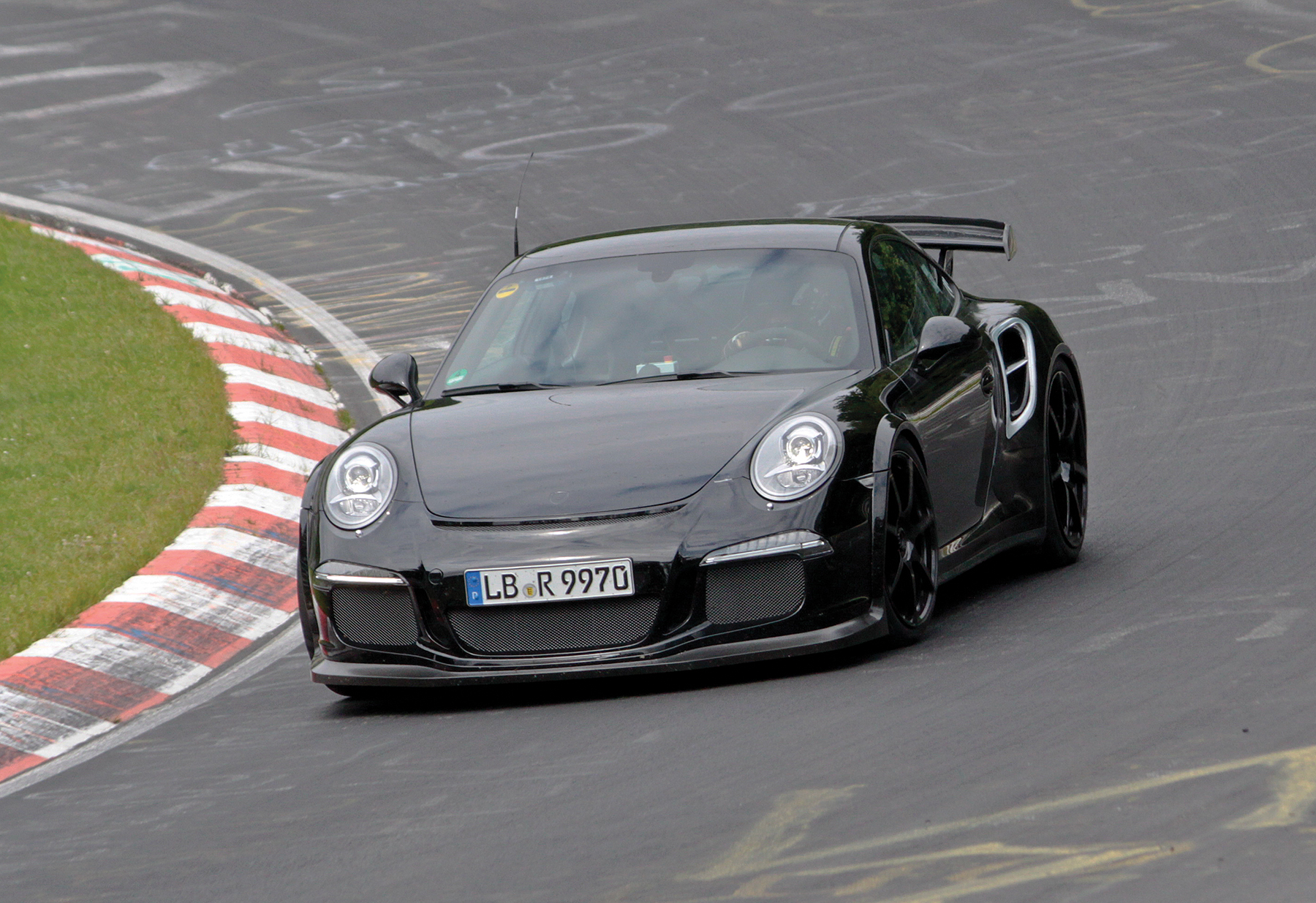New Porsche 911 GT2 spec revealed
Porsche insiders have finally confirmed to Total911.com the arrival of the next-generation Widowmaker. The GT2, the first model to wear that iconic badge in the 991 series, will deliver 650hp from a development of the existing Turbo S’s 3.8-litre twin-turbo flat-six. Our sources admit that as much as 700hp is possible, but 650hp is able to be achieved within Porsche’s expectations for reliability. The new Porsche 911 GT2 will retain its rear-wheel drive chassis, though the previously three-pedal six-speed manual transmission will make way for a seven-speed PDK automatic.
Nürbrurgring lap times have always been important to Porsche, and officials are also beginning to whisper these for the new 911 GT2. Our sources admit an actual representative time has yet to be achieved thanks to the onset of winter, but internal calculations suggest a time of 7 minutes 5 seconds. The previous GT2 RS had a quoted figure of 7 minutes 18 seconds, don’t forget.

Given Porsche’s usually conservative official figures, expect that to be a bit quicker when given to Nürburgring experts like a certain Mr Walter Rohrl. Engineers involved in the GTS model series say that with road-legal Pirelli PZero Corsa tyres, a perfectly equipped GTS coupe can achieve a Nurburgring laptime of 7 minutes 22 seconds, underlining the narrowing gap between the ‘conventional’ Carrera line-up and the GT department’s more extreme models, and the need for ever quicker, more intense models.
What is certain is that the new Porsche 911 GT2 GT2 will have a top speed in excess of 200mph and a 0-62mph time around that of the Turbo S’s 2.9 seconds, that achieved thanks in part to some weight reduction by binning the Turbo’s four-wheel drive, though that itself limits the potential traction. As befitting its extreme nature, the GT2 will lose its rear seats, offer a Clubsport package with a half cage and lightweight seats, with Porsche certain to strip out as much mass from its most hardcore 911 yet to help deliver its legend and anticipated extreme performance.

Comments (4)